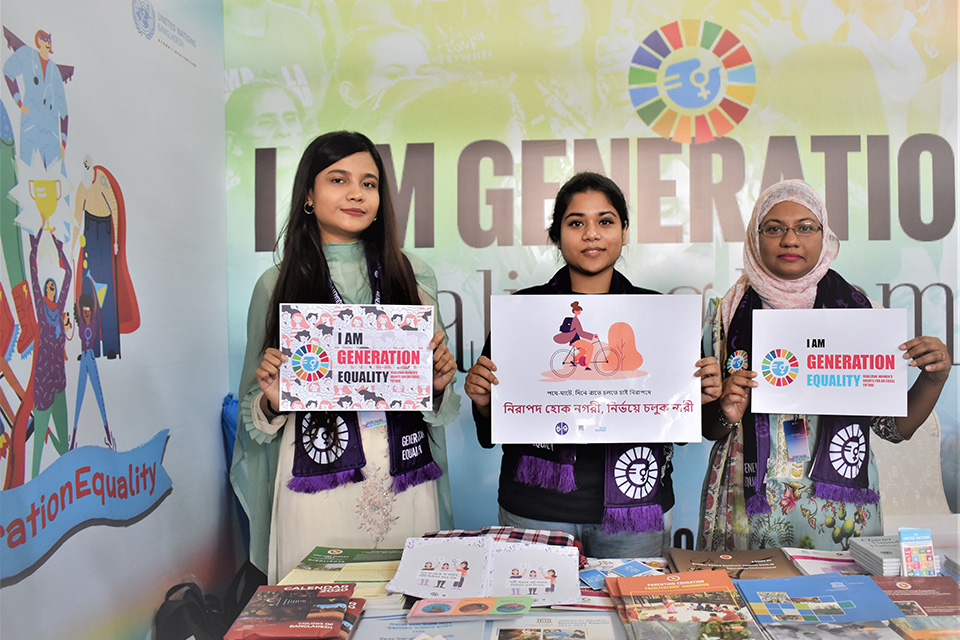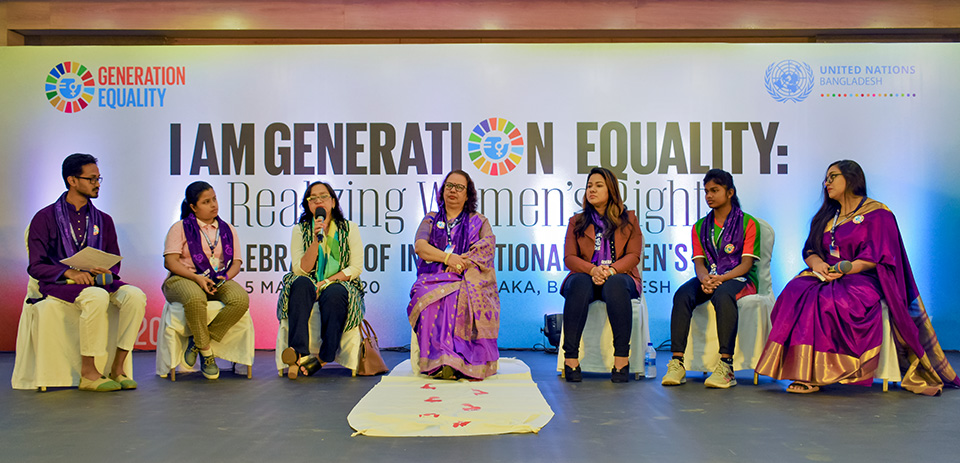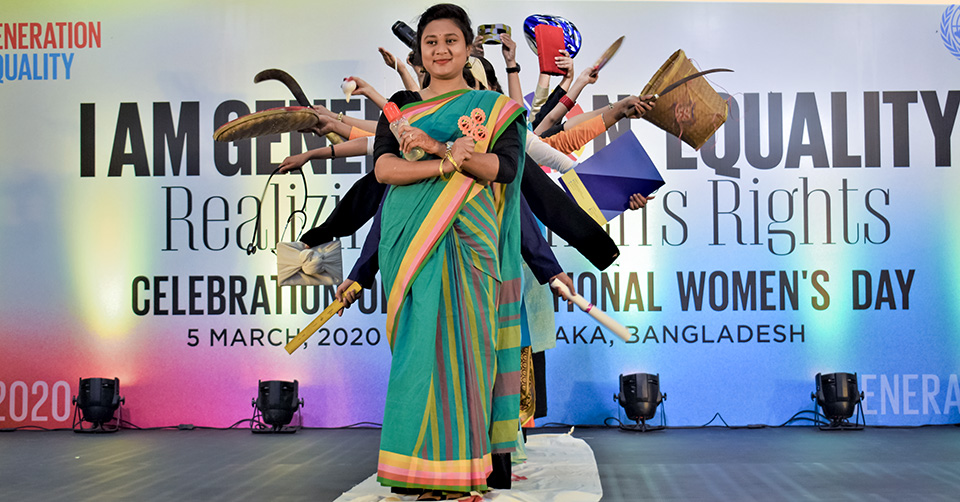Bangladesh students pledge to promote respect for women at home and outside
Date:
Author: Evelin Jaita Karmokar

Dhaka, Bangladesh — Hundreds of university students have pledged to adopt and promote greater respect for women at home and in the workplace and community.
They made the commitment at a March 5 event that United Nations in Bangladesh organized to celebrate International Women’s Day under the theme, I am Generation Equality: Realizing Women's Rights. Hundreds of students from youth volunteer organizations and Women’s Peace Café at Jatiya Kabi Kazi Nazrul Islam University attended the event at Bangabandhu International Conference Center in Dhaka.

The event kicked off with female students from Women’s Peace Café showcasing on stage the diversity of women — doctor, teacher, lawyer, farmer, mother and caregiver, pilot, and army officer — to show that women are capable of anything.
Then Sudipto Mukerjee, Resident Representative of United Nations Development Programme, spoke as a male champion for gender equality and shared with the audience three messages for International Women’s Day:
- “We must change the way we look at girls. Gender equality has been long associated with persistent social practices and norms. They tell you what you should wear, when to get married, when to bear a child. That needs to change. Let’s start by challenging stereotypes -- both men and women, and we must start today.”
- “I urge you all to speak up. Being a passive bystander is not the way to go.”
- “How you define a modern man is interesting and changing. It’s no longer cool to not cry, to be violent. It is cool to be somebody who can cry, who has emotions, and who knows his boundaries and respects them, looks up to the spouse and children, is a man of integrity and finally, has a good sense of humor.”
The highlight of the event was an intergenerational dialogue in which accomplished women and girls spoke about the obstacles and challenges they faced from Bangladesh’s patriarchal society and how they have fought back against stereotypes and social norms. They were Shatkhira Jakir Jessy, a national cricket team player; Surudhani Kisku, a national Under-16 football team player; Kamrun Nahar Dina, a former national award-winning badminton player; and entrepreneurs Taslima Miji, Selina Quader and Saraban Tahura.

Every one of them advised young women to be bold and passionate and to work relentlessly to achieve their goals.
Shoko Ishikawa, Acting Resident Coordinator and Country Representative of UN Women Bangladesh, reflected on the youth consultations that were organized in late 2019 to prepare for the Beijing+25 Review – a review of progress and continuing challenges since the 1995 Beijing Declaration and Platform for Action to advance women’s rights.
Ishikawa said: “We heard you – your common voice echoing across the country. You stressed violence against women as the key and urgent concern of your generation. You questioned why women do not have equal inheritance rights and why girls have to continue to live with restrictive social norms including child marriage.”
To resolve these problems, she said, “We must transform rigid social norms that fuel and perpetuate gender inequality, address gender biases and stereotypes. We need to raise awareness about the key issue of consent, that only ‘yes means yes’, and that consent must be given freely without manipulation or coercion.”
The event ended with two students, one male and one female, reading out to the audience 10 commitments that all the students had agreed to keep and encouraged everyone else to keep. They promised to use gender-neutral language in the workplace, educational institutes and among friends; to appreciate women who stay home to care for their family and invite men and children to share in household chores; to stop blaming victims of violence and abuse; and to respect instead of humiliate women who get promoted at work.